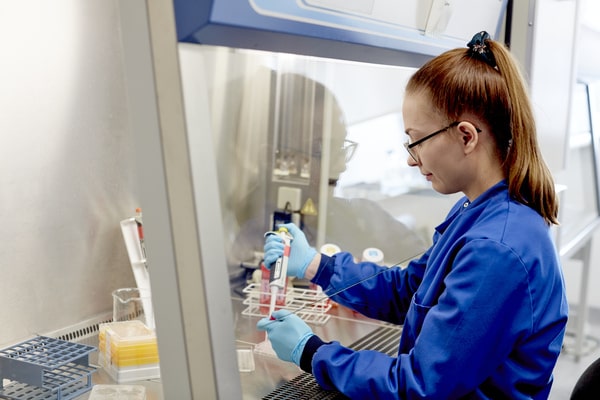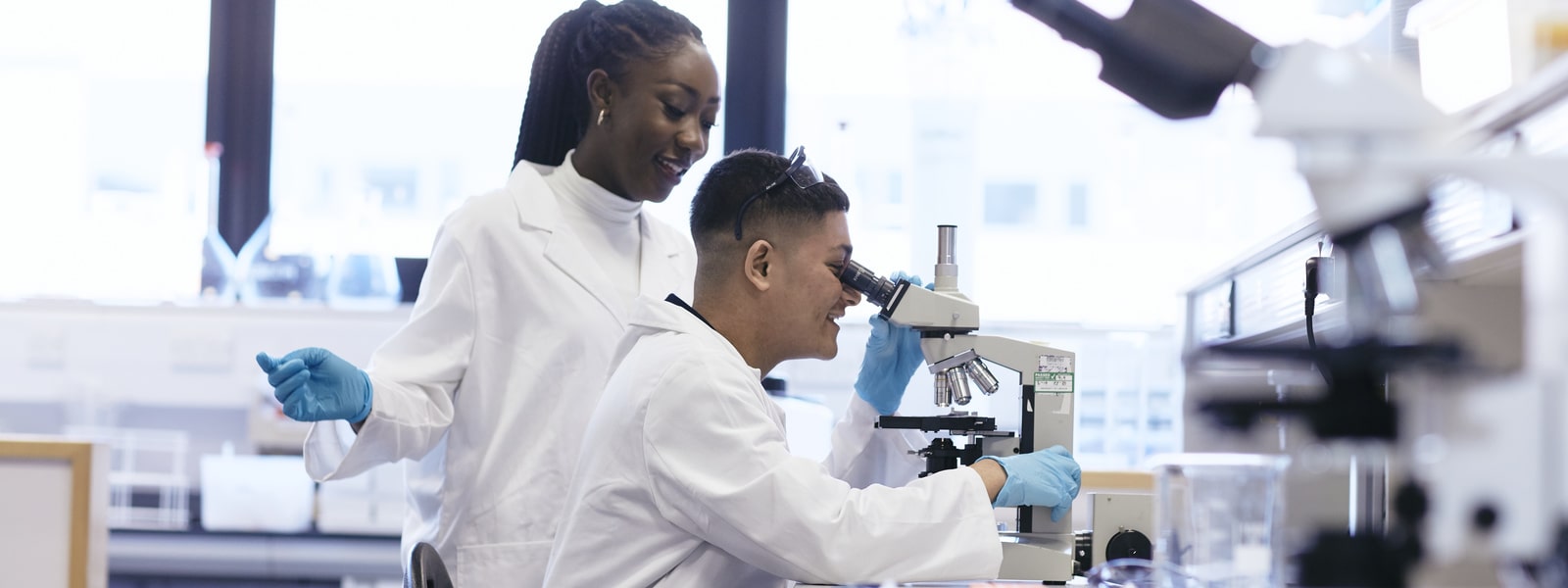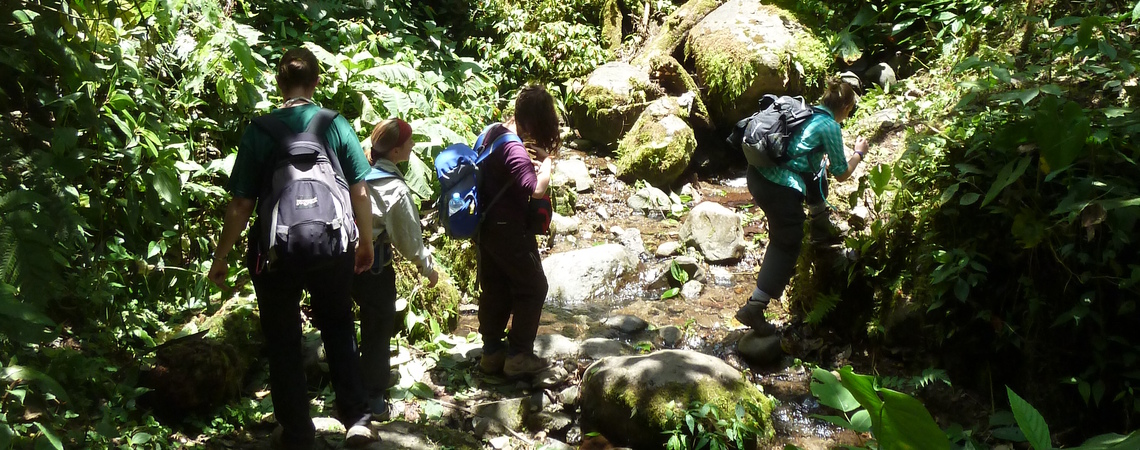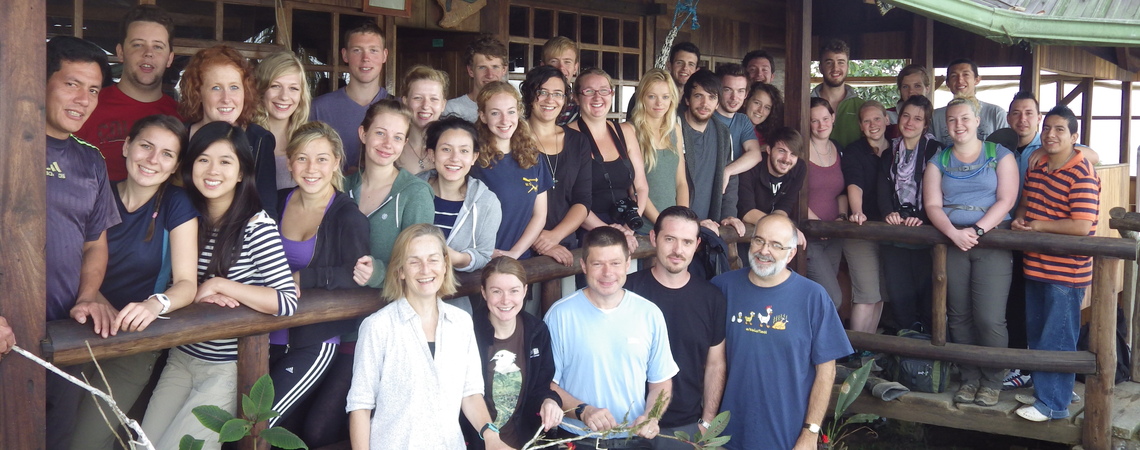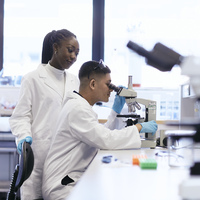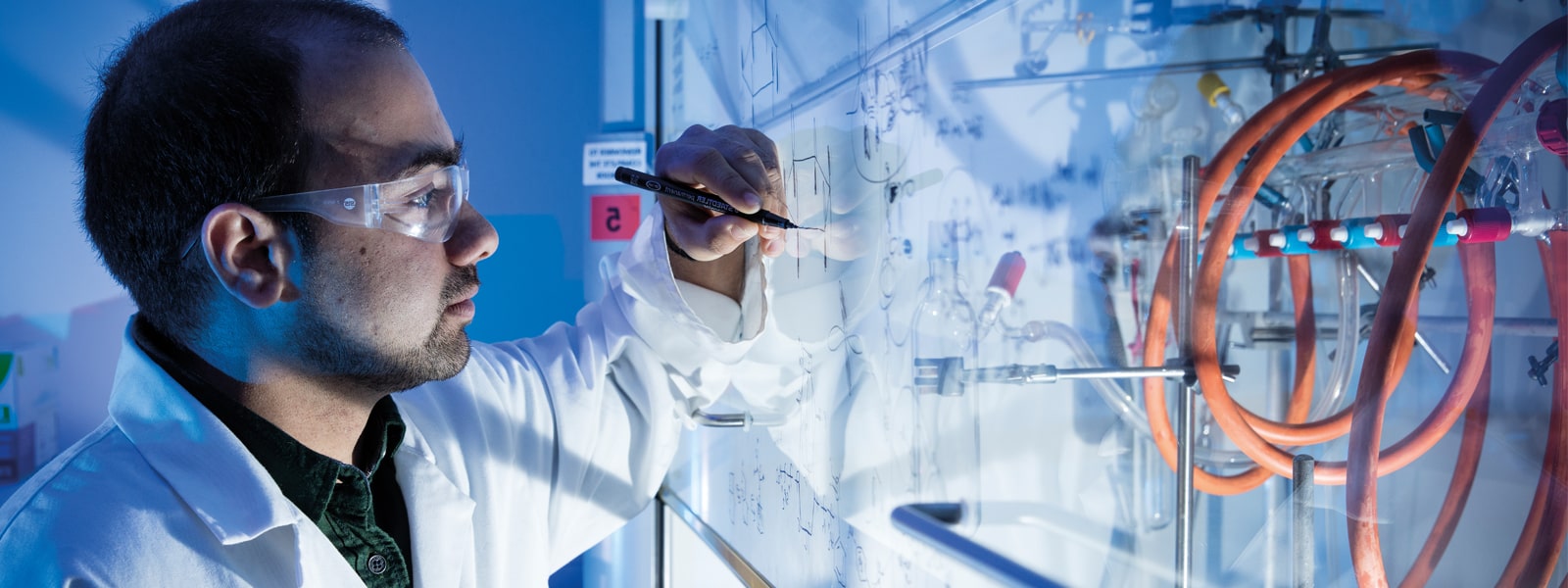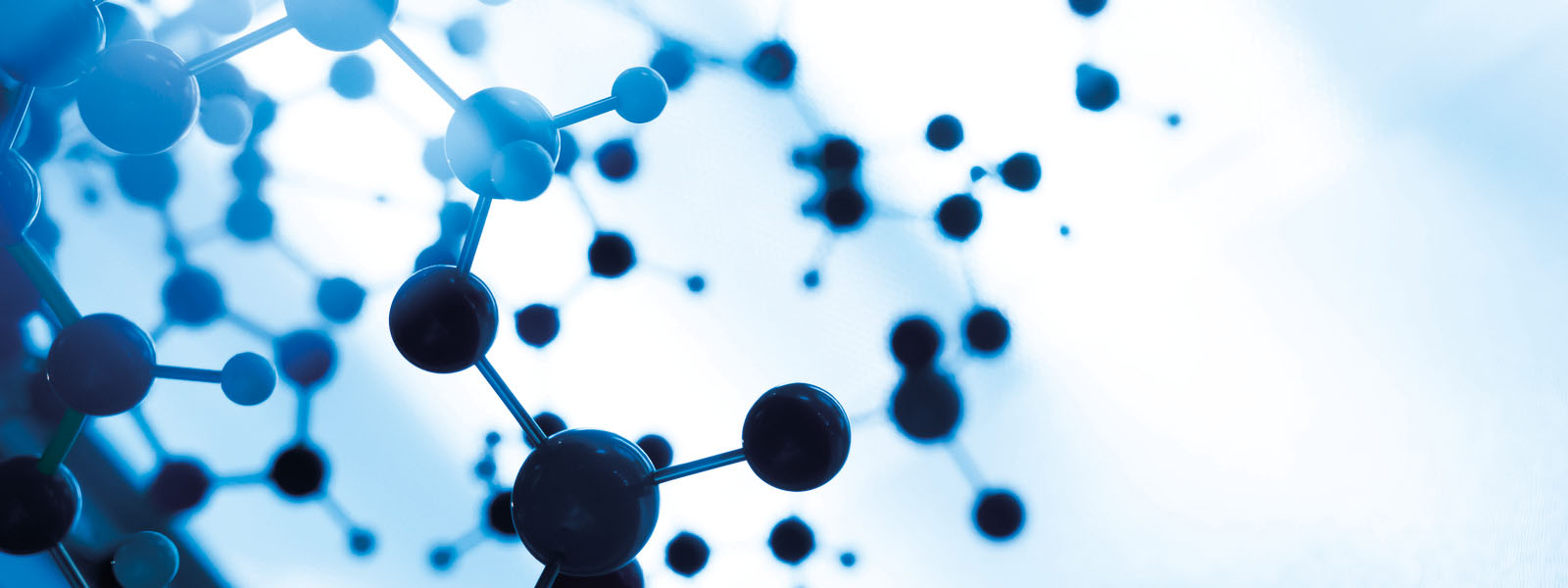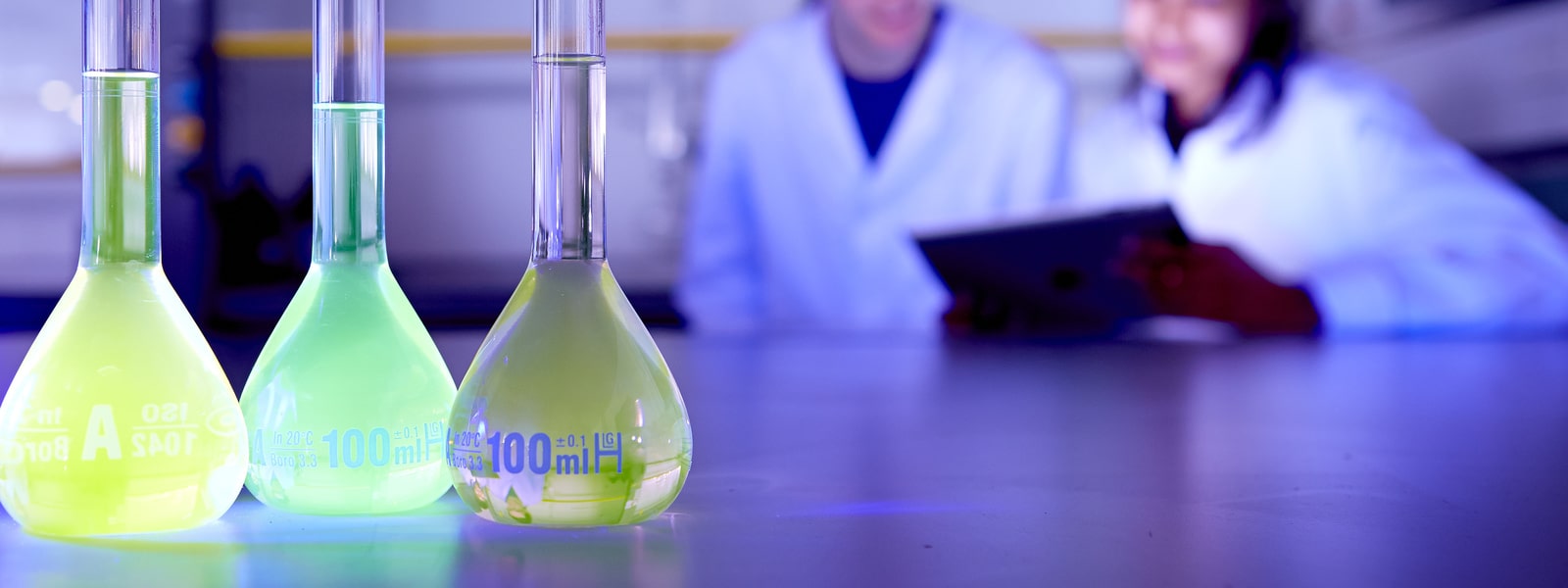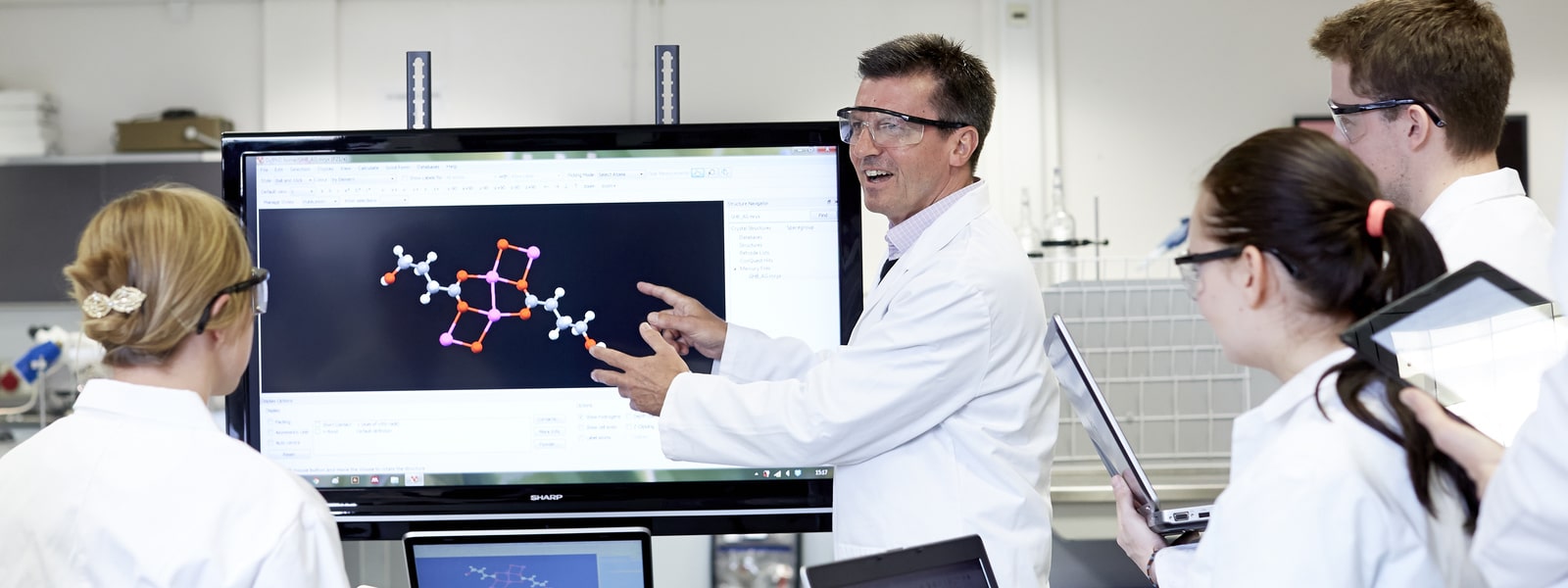Module Overview
This module aims to provide real-world context to the theoretical knowledge of biochemical properties, processes, and techniques. Via the delivery of theoretical background material, supported with real life case studies and problem based learning, students will be guided through how fundamental understanding of biochemistry can be applied in a variety of ways to solve problems and develop products. The module will also highlight the external pressures to industrial and academic exploitation of biochemical fundamental knowledge, by considering ethical, regulatory, funding, and commercial limitations and opportunities. Substantial experimental design and data handling training will be incorporated to prepare the students for innovative application of knowledge, and evaluation of their own work and other research.
Module Overview
In this module, students undertake an independent programme of research under supervision from a member of staff. It provides students with an opportunity to demonstrate original and critical thought, as well as to build discipline-specific research and project-management skills.
A wide range of subject expertise exists within the School, and students are expected to work on a project that is relevant to their programme of study. Under the guidance of a supervisor, students will review the literature, identify a research question/aim and objectives, and design a programme of research respectively. Students will be expected to manage the project and work in a safe and ethical manner, which will include undergoing training in and engaging with obtaining relevant ethical approval and risk assessment. Students will collect and analyse data, record their activities and research methodology and results in a “lab book”/ equivalent robust means of recording.
We currently offer projects in the laboratory (wet or animal) or field, projects that involve data analysis, literature research, educational research, science communication research and market research. Students may work individually or in groups addressing similar questions, but must write up individually. The findings of the research will be written up and presented orally. The conduct and performance of the student as a research apprentice will be assessed.
Module Overview
This module builds on the skills and information gained earlier on in the biochemistry programme. The module follows a logical theme from “gene” to “the active site interrogation of an enzyme”. It takes students on journey explaining how to assess and clone a gene for protein expression, purify and evaluate its activity, crystallise it, and finally use mutagenesis and structural biology to dissect the enzyme’s mechanism. The module has been designed to develop practical skills and techniques to enable students to work in molecular biology and protein research / production laboratories. The module focuses on problem solving and experimental design in tandem with practical expertise in these advanced areas.
Module Overview
This module introduces current topics and areas of research allied to biochemistry. The major focus of this module is on the use of biochemical knowledge and advancements that are being utilised to address modern day issues. In particular, the module will explore the central importance of biochemistry in relation to molecular biology, disease processes, biotechnology, and the pursuit of fundamental knowledge regarding cellular processes.
The major focus of this module is on the use of biochemical knowledge and advancements that are being utilised to address modern day issues. In particular, students can explore the central importance of biochemistry in relation to molecular biology, disease processes, and the pursuit of fundamental knowledge regarding cellular processes.
Module Overview
Our understanding of human disease is constantly evolving and this increased knowledge is presenting new opportunities to better therapeutically target and treat these diseases. As such, this module will focus on investigating the latest cutting-edge treatments being used by the NHS now and into the future to treat disease, discuss the ethics associated with bringing these into practice, evaluate the successfulness and limitation of these approaches, and explore where future development is needed to fully realise their potential.
Module Overview
This module provides an overview of the role of cellular pathology in the diagnosis and monitoring of malignant and non-malignant diseases. This module intends to evaluate the normal and abnormal histology and ultra-structural features of human cells and tissues. The module enables students to appraise malignant and non-malignant cytology, and critically evaluate the role of multiple research and diagnostic techniques; ie. electron microscope and immunocytochemistry in pathological differential diagnosis. The module aims to enable students to understand and critically evaluate different methodologies of cancer treatment, how cancer drug resistance evolves, and investigation of the role of personalised medicine for optimum patient treatment/outcomes.
Module Overview
The module provides an overview of the applications of genetics and its ethical and social considerations with an introduction to ethical philosophy. This module also intends to discuss genetic counseling, diagnosis of genetic disease, carrier detection, and pre-symptomatic testing. The module enables students to evaluate population screening, and community genetics for single gene and chromosome disorders and also the ethical and social considerations of the understanding of the human genome, the treatment of genetic diseases, gene therapy, and the ethics of experimental animal use.
Module Overview
This module is designed to introduce the student to the fundamentals of forensic anthropology. Students will be introduced to forensic anthropology before embarking on a series of lectures and practical sessions covering human osteology and the methods used to estimate a biological profile; sex, ancestry, age, and stature estimation. This module will also introduce the student to the various pathological conditions and traumatic injury affecting human bone including post-mortem damage. This module aims to equip the students with the fundamental knowledge and skills to participate in forensic anthropological analysis by preparing a case report on a skeleton.
Module Overview
This module provides students with the opportunity to investigate biological phenomena in the field at an overseas location. Students work in groups, guided by staff, to develop and test hypotheses allowing them to understand more about biological processes operating within the study area. They are encouraged to view the ecosystem within the wider context of the anthropogenic impacts being imposed on it. This module is optional and courses run subject to sufficient student demand.
